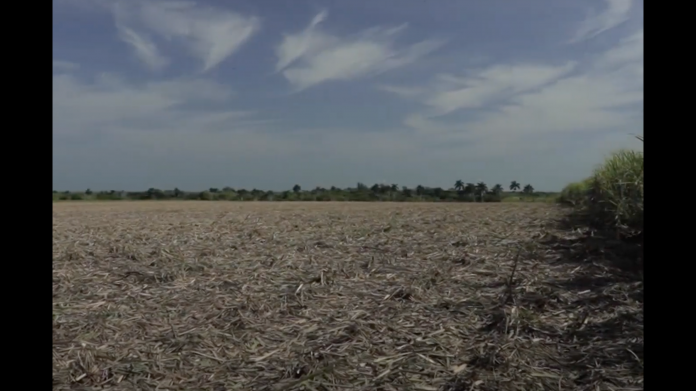It’s undeniably one of economist Milton Friedman’s most famous sayings about the failures of central planning: “If you put the federal government in charge of the Sahara Desert, in five years there’d be a shortage of sand.”
This was, of course, a stroke of hyperbole. Not even a billion Keynesian ditch-diggers could empty the Sahara.
However, we have seen the closest thing to Friedman’s vision coming true: In Cuba, an island practically made of sugarcane, the communist government now needs to import sugar.
It’s bad enough that, according to CiberCuba — an expatriate-run outlet which is critical of the government — a pound of sugar now costs 600 pesos on the island, or about $25 USD.
“Despite efforts to revive the sugar industry, the sector continues to face serious challenges, including failures in the last harvest,” CiberCuba reported earlier this month.
“During the session of the National Assembly of People’s Power, Cuban Prime Minister Manuel Marrero Cruz recalled when Raúl Castro remarked that ‘it would be an embarrassment to have to import sugar.’ He then stated, ‘and well, we are experiencing that embarrassment because we are importing sugar.’”
Cruz “emphasized that the crisis in the sector is such that the country has also stopped exporting sugar, which was a key component of the economy,” according to CiberCuba.
And it’s not just dissident outlets like CiberCuba that are reporting on the failures of Cuba’s sugar industry, either. Earlier this year, the BBC’s Cuba correspondent, Will Grant, filed a piece about the failures of the system.
Shocker of shockers, you know what’s to blame? Communism!
“Cutting cane is all Miguel Guzmán has ever known. He comes from a family of farm hands and started the tough, thankless work as a teenager,” the May piece began. “For hundreds of years, sugar was the mainstay of the Cuban economy. It was not just the island’s main export but also the cornerstone of another national industry, rum.”
“Today, though, he readily admits he has never seen the sugar industry as broken and depressed as it is now – not even when the Soviet Union’s lucrative sugar quotas dried up after the Cold War,” Grant noted. “Spiraling inflation, shortages of basic goods and the decades-long US economic embargo have made for a dire economic outlook across the board in Cuba. But things are particularly bleak in the sugar trade.”
“There’s not enough trucks and the fuel shortages mean sometimes several days pass before we can work,” Guzmán said under a “tiny patch of shade” while he waited for Soviet-era trucks to arrive.
Grant noted that “last season, Cuba’s production fell to just 350,000 tons of raw sugar, an all-time low for the country, and well below the 1.3 million tons recorded in 2019.”
“Cuba now imports sugar to meet domestic demand – once unthinkable, and a far cry from the glory years when Cuban sugar was the envy of the Caribbean and exported around the world.”
Instead, chronic mismanagement, refusal to invest in infrastructure and a focus on tourism have decimated the industry, which has been at the forefront of the island’s part in the global economy since its discovery by Europeans centuries ago.
And yet, despite the fact that Mr. Guzmán is one of the fastest cutters on one of the most efficient government-organized teams in the country, he told the BBC “he receives no financial incentive for greater production beyond his love of the trade.”
“My wages barely buy anything any more,” he said. “But what can we do? Cuba needs the sugar.”
Those of you with a fondness for George Orwell will recognize Guzmán as the archetype of Boxer — the horse in “Animal Farm,” the one who looked at the setbacks on the allegorical communist estate and simply said, “I will work harder.”
Boxer, for those of you who haven’t read in the book in a while, got unceremoniously boiled down into glue after being sent off to a slaughterhouse while the pigs lied and concocted a heroic end tale for the horse. But seriously, folks, the conservatives are really the ones Orwell was warning you about.
The rest of the animals, you may also dimly remember, were not as obedient or gullible as Boxer and responded to incentives, much the way the human animal does.
One assumes that the majority of Cuban sugar workers are like this, as well, and probably only pretend to work for a system that only pretends to feed them.
So, what now?
“The Cuban government has proposed an ‘internal resizing’ of the sector, which includes modernizing equipment, enhancing worker support, and making adjustments to the production structure,” CiberCuba noted.
“However, these measures have not been sufficient to halt the crisis, and the government has acknowledged that the recovery of the industry will rely on significant structural changes.”
Those “significant structural changes,” I assume, will not include the one structural change that is necessary for Cuba to recover: ditching communism.
This article appeared originally on The Western Journal.
The post Communism Fumbles Again: Cuba Importing Resource It Was Once Famed For Producing appeared first on The Gateway Pundit.
This article may have been paraphrased or summarized for brevity. The original article may be accessed here: Read Source Article.





![President Trump Gives Barron A Shout Out At Inaugural Parade: His Unexpected Response is Pure Gold! [VIDEO] president-trump-gives-barron-a-shout-out-at-inaugural-parade:-his-unexpected-response-is-pure-gold!-[video]](https://news.lateawakening.com/wp-content/uploads/2025/01/35545-president-trump-gives-barron-a-shout-out-at-inaugural-parade-his-unexpected-response-is-pure-gold-video-100x70.jpg)



